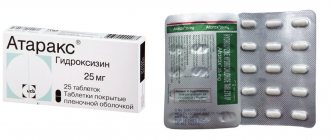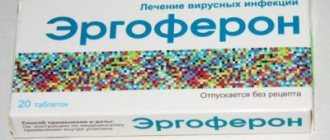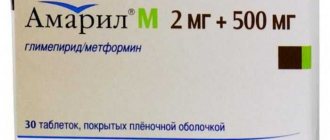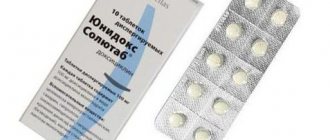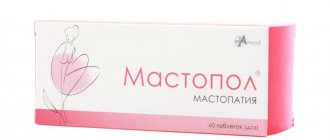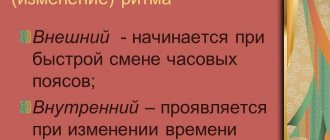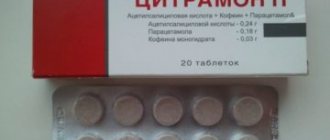Phenibut is a nootropic that facilitates GABA-mediated transmission of nerve impulses to the central nervous system (direct effect on GABA receptors). Additionally, it has a tranquilizing, psychostimulating, antiplatelet and antioxidant effect.
Improves the functional state of the brain by normalizing tissue metabolism and influencing cerebral circulation (increases the volumetric and linear velocity of cerebral blood flow, reduces cerebral vascular tone, improves microcirculation, and has an antiplatelet effect). Helps reduce or eliminate feelings of anxiety, tension, restlessness and fear, normalizes sleep, and has some anticonvulsant effect.
The drug Phenibut is used as a nootropic, psychostimulant, tranquilizing, antioxidant and antiplatelet agent:
- in order to improve psychological indicators (memory, attention, speed of sensory-motor reactions);
- to increase physical and mental performance;
- to normalize sleep
- in complex therapy of motor and speech disorders;
- to improve microcirculation in eye tissues in ophthalmopathology;
- to eliminate anxiety, anxiety, fear in asthenic, anxious-neurotic conditions.
Phenibut has a positive effect on psychological indicators (memory, attention, accuracy and speed of sensory-motor reactions). Reduces manifestations of asthenia, helps improve mental performance, minimizes vasovegetative symptoms (headache, sleep disturbances, emotional lability, irritability, feeling of heaviness in the head).
Course use helps improve mental and physical performance, normalizes sleep and improves memory. According to doctors, Phenibut significantly improves the condition of patients with speech and motor disorders.
Patients with asthenia feel improvement from the first days of taking the drug, and their motivation for activity increases. The drug does not have a stimulating or sedative effect.
Enhances the effect of sleeping pills and anticonvulsants when taken simultaneously. Caution should be exercised when administered to patients with gastrointestinal ulcers.
As a result of clinical trials, it was possible to prove the high effect of the drug and its ability to significantly improve the functional state of the brain. The effect of the dosage form is due to the ability of the active substance to normalize metabolism and activate cerebral circulation.
Phenibut: description, principle of action
The basis of the drug Phenibut is the active substance aminophenylbutyric acid. It is a derivative of gamma-aminobutyric acid (GABA) and phenylethylamine. GABA performs the function of a central nervous system mediator in the body.
In other words, this acid is extremely important for the normal functioning of the central nervous system and the stable functioning of brain cells. Gamma-aminobutyric acid determines one of the pharmacological actions of Phenibut - nootropic. GABA improves memory, concentration and mental performance.
Phenibut can also be considered as a derivative of another substance - phenylethylamine, which has an anxiolytic effect. In other words, the drug in question also exhibits the properties of a tranquilizer: it relieves anxiety, helps normalize sleep and performance, and remove anxiety and fear.
The wide range of therapeutic activity of this drug makes it possible to use Phenibut to relieve anxiety and simultaneously increase brain productivity. In other words, choosing this drug for use is advisable when work is associated with an increased stress factor and at the same time requires maximum concentration and mental performance.
Composition and release forms
The drug is available in two forms:
- pills;
- substance-powder.
Phenibut tablets are produced in a dosage of 250 mg. The color of the flat-cylindrical tablets varies from slightly yellowish to white. Each tablet has a score and a chamfer. One blister pack contains 10 pieces.
Phenibut powder substance is a less common form of release of the drug. It is produced in a dosage of 100 mg and is a white powder with a characteristic salty-sour taste. It dissolves well in water and alcohol.
Indications
First of all, Phenibut is prescribed for neuroses - neurasthenia, hysteria and obsessive-compulsive neuroses. The basis of neurasthenia is weakness, irritability and loss of strength.
The use of the drug helps to activate mental functions and improve performance. Obsessive-compulsive neuroses manifest themselves in the form of anxiety, sleep disturbances, and unreasonable fears. Phenibut helps reduce such manifestations and smooth out increased emotionality.
A course of treatment with Phenibut is also prescribed for certain mental illnesses that are characterized by neurosis-like symptoms. The therapeutic effect of the drug can be achieved in psychopathy, manic-depressive psychosis and schizophrenia.
As part of complex treatment, Phenibut is prescribed for hangover syndrome, which develops in patients with chronic alcoholism. When giving up alcoholic beverages, patients experience certain symptoms from the central nervous system and autonomic system.
This may include tremors of the limbs, increased blood pressure, severe headaches, vomiting and palpitations. With prolonged drinking bouts, delirium may develop 2-3 days after giving up alcoholic beverages - alcoholic psychosis, which is known to everyone as “delirium tremens”. Phenibut is used to treat hangover syndrome and prevent such disorders from the central nervous system.
The use of Phenibut is also advisable in the treatment of ischemic strokes. This is due to the fact that the drug is able to restore the functions of neurons located in the immediate vicinity of the lesion. In this case, Phenibut is prescribed immediately after a stroke as part of a comprehensive treatment.
The drug’s ability to improve blood circulation allows it to be used for hemorrhagic strokes and traumatic brain injuries. At the same time, Phenibut can be used in this case only after making sure that the bleeding has stopped.
Phenibut is prescribed to restore coordination of movements and for disorders of the vestibular apparatus. The drug relieves dizziness caused by such disorders and is used to prevent motion sickness when traveling.
Phenibut is prescribed to children for the treatment of enuresis, stuttering, childhood fears and tics of various origins. For older people, the use of this drug is indicated for sleep disorders and nightmares.
How to take Phenibut?
Instructions for use Phenibut indicate that this drug requires a course of treatment. The duration of one course can reach 1.5 months, depending on the specific disease and the severity of symptoms. If necessary, treatment can continue longer, but there must be a break of at least two weeks between courses.
Good to know: The drug should be taken after meals, washing down the tablet with the required amount of liquid. Taking Phenibut before eating is not recommended, as this may cause irritation of the gastric mucosa.
For adults, the standard dosage is 250-500 mg three times daily. Children under 14 years of age are usually prescribed one tablet three times a day. The maximum single dose of the drug for children should not exceed 0.3 g, for adults – 0.75 g, for elderly people over 65 years of age – 0.5 g.
Treatment of asthenic conditions and manifestations of neurosis is accompanied by taking one tablet twice a day. The duration of the course is determined by the doctor individually and can reach 1.5 months.
In case of decreased mental performance, stressful conditions and high loads, take one tablet per day. The duration of the course depends on the duration of the period of intense exercise, and when it ends, the drug is stopped.
For hangover syndrome, Phenibut is taken three times a day, 250-500 mg. It is also recommended to include an additional fourth dose before bedtime - 3 tablets. The duration of this regimen is within 5 days. After this, the fourth dose of the drug is canceled and 1-2 tablets are taken three times a day until the symptoms are completely eliminated.
In order to prevent motion sickness, the drug should be taken 1 hour before the trip, 1 tablet. If symptoms have already appeared, taking Phenibut is not advisable.
Phenibut - instructions for children
The instructions for Phenibut for children provide for a different form of release of the drug. The product is sold in powder form. If Phenibut for children is used, the instructions for use suggest the following dosage regimens:
| For urinary retention in children aged | Amount of mg per dose | Number of appointments per day | Course of treatment in days |
| Up to 10 years: | 20 | 3 | 40-60 |
| 10-15 years: | 50 | 3 | 40-60 |
Phenibut's abstract contains information that the drug is suitable for use in children over 8 years of age. In some cases, the attending physician may prescribe it for infants to treat the consequences of birth injuries, asphyxia and neuroinfections. It is widely used to treat children from 2 years of age with mental development disorders. Reviews about the treatment of children with this medicine are favorable. When taken, memory improves and the child becomes calmer.
- How to find out a phone number by last name
- Cholecystitis - symptoms and treatment in adults at home
- How to cook pumpkin tasty and quickly
Phenibut: mechanism of action
Phenibut is a powerful nootropic with high bioavailability. The drug has antioxidant, psychostimulating and tranquilizing effects. Neutralizes the effect of free radicals, improves the functional state of the brain, enhancing tissue metabolism and cerebral circulation. Phenibut has modest contraindications, which increases its value over other developments of similar action. The effect of the drug is observed on the 5th day of therapy. After stopping the use of Phenibut, there is a residual effect that can last up to 2 weeks. The maximum permissible single dosage for adults is 750 mg. Phenibut can be used to treat children. The dosage is selected taking into account the age and psycho-emotional state of the patient, and the permissible presence of contraindications.
Phenibut normalizes sleep, relieves fear, increases physical and mental performance, and improves visual acuity. Indications for use of the pharmaceutical development are:
- neurotic conditions,
- anxiety,
- psychopathy,
- insomnia,
- nightmares,
- fear of medical procedures,
- alcoholism.
The scope of application of the composition can be expanded. In particular, Phenibut is recommended for those who quit smoking: the drug eliminates psychological dependence, improves general condition, and reduces the likelihood of nervous breakdowns while giving up a bad habit. Phenibut also alleviates withdrawal syndrome in other conditions: alcohol withdrawal, gambling addiction, etc. Women who have difficulty with premenstrual syndrome can, in the absence of contraindications, use Phenibut to alleviate their psycho-emotional state.
The drug can be recommended for use in the presence of somatic diseases complicated by anxiety conditions.
Application for children
The drug regulates metabolism in the brain, reduces feelings of anxiety and tension. In addition, it enhances and prolongs the effect of sleeping pills, neuroleptics, and narcotic drugs on the body. This is quite a serious remedy. Therefore, the question often arises: for what purposes is this medicine prescribed to children? And is it dangerous to use?
First, let's look at the conditions under which the doctor prescribes the drug Phenibut. Indications for the use of this medicine in children are as follows:
- Hyperexcitability.
- Increased nervousness.
- Disruption of metabolic processes in the brain, provoked by neuroinfection, fetal asphyxia or birth injuries.
- Stuttering.
- Enuresis.
- Teak.
The drug "Phenibut" is the safest of the entire range of nootropic drugs. That is why it is allowed to be used even for infants.
If we talk about effectiveness, then, despite such extensive indications for use for the drug "Phenibut", reviews about it are quite contradictory.
Composition of the drug
The main active ingredient of the drug Phenibut is gamma-amino-beta-phenylbutyric acid or, as it is also called for short, aminophenylbutyric acid.
The substance was discovered at the Herzen Pedagogical Institute and is known for being part of the astronauts' pharmacy for a long time. The tablets had the ability to relieve anxiety without affecting the astronaut's performance, which was considered important for normal work in orbit.
The main active ingredient of the tablets is a derivative of GABA and phenylethylamine. In addition to nootropic activity, it has a mild tranquilizing effect.
In addition to the main active ingredient, the composition also includes excipients. Among them:
- lactose or milk sugar;
- calcium of stearic origin;
- potato starch;
- low molecular weight polyvinylpyrrolidone.
Tablets differ in composition from powder, another form of release of the drug Phenibut. The powder, unlike the tablets, did not contain polyvinylpyrrolidone.
Dosage, release forms and manufacturers
Today, the medicine Phenibut can be found in two forms: powder and tablets. Several pharmaceutical factories are involved in the production, some of them are located in the countries of the former USSR. In pharmacies you can find tablets from the following manufacturers:
- Belmedpreparaty RUP;
- Organika (Russia);
- Olainfarm (Latvia);
- Mir-Pharm (Russia);
- Ozone (Russia).
Photos of packaging from various manufacturers
Regardless of the plant producing the medicine, all drugs are the same, the production technology is the same. The names by which the tablets or powder are known in the pharmacy may vary slightly.
Phenibut and Phenibut-ANVI
It’s just that Phenibut and Phenibut-ANVI are the same remedy. It is important to remember that the amount of active ingredient in similar medicines is also similar. But, despite this, doctors recommend buying exactly the drug that was prescribed. This is explained by the fact that different tablets may contain different excipients, which may affect the properties.
The medication can be taken in two possible dosages. The product is produced in the form of powder and tablets with a dosage of 250 mg and 100 mg.
It is important to remember that on some packages, instead of a mark of 250 mg or 100 mg, there may be a mark of 0.25 g or 0.1 g. The drugs are similar in the amount of active substance; the method of indicating the dose does not affect the intake!
Effect on the body
Clinical trials on animals have yielded positive results in investigating the effects of phenibut on the central nervous system. After obtaining the necessary data, it was concluded that phenibut increases physical strength, improves a person’s intellectual abilities, and reduces the feeling of fatigue after training. Also, taking this drug leads to muscle relaxation, which helps to recover faster after intense exercise. Athletes often take Phenibut to relieve anxiety and anxiety before competitions.
Therapeutic effect (what the tablets are for)
Phenibut is an analogue of GABA and phenylethylamine. In nature, GABA is the most important brain metabolite, which ensures the normal functioning of nerve tissue. GABA improves attention, memory, and the efficiency of brain activity, that is, it has a nootropic effect. Phenylethylamine performs tranquilizing functions in a normally functioning body. Thanks to its action, anxiety is relieved, anxiety and fear are eliminated, and sleep improves. The effect of the drug imitates both of these substances, that is, it acts as a nootropic with a tranquilizer effect.
Some doctors classify the medicine as a tranquilizer, not a nootropic. This is explained by the fact that, according to the doctor, its tranquilizing effect is more important than the nootropic effect in the treatment of various pathologies.
Most doctors prefer to classify Phenibut as a drug that has a pronounced nootropic effect and a weak tranquilizing effect. With the help of the medicine, the state of internal tension, mood lability, excessive emotionality and other behavioral deviations are effectively relieved, and side effects are minimal.
pharmachologic effect
Phenibut is a nootropic drug that facilitates the transmission of nerve impulses, has a tranquilizing, psychostimulating, antiplatelet and antioxidant effect.
The use of the drug normalizes the functional state of the brain by improving blood circulation, reducing vascular tone and providing an antiplatelet effect. Relieves feelings of anxiety, fear, restlessness; improves sleep and relieves seizures. Reduces the manifestation of vasovegetative symptoms and asthenia, increases mental activity and psychological indicators (memory, attention and speed of sensory-motor reactions).
Indications, contraindications and side effects
If you ask any doctor, he will say that taking Phenibut is possible only under strict indications. Tablets are prescribed for the treatment of the following cases:
- the patient suffers from asthenic or anxiety-neurotic conditions;
- obsessive-compulsive disorder diagnosed;
- there are signs of psychopathy;
- urinary outflow retention has developed due to myelodysplasia;
- elderly patients suffer from nightmares or insomnia;
- it is necessary to relieve anxiety states before medical intervention (often surgical);
- the patient's sleep suffers due to high levels of anxiety;
- Diagnosed with Minière's disease;
- the patient suffers from dysfunction of the vestibular apparatus of any origin;
- It is necessary to prevent motion sickness during kinetosis.
Phenibut is indicated for children in the treatment of stuttering and tics. The active ingredient Phenibut has a beneficial effect on the body in open-angle glaucoma. Phenibut tablets can be used in the auxiliary treatment of alcoholism (not as monotherapy!). The state of predelirium and delirium also allows for its use in treatment.
The use of the drug, despite many indications, is still limited. Tablets, as the instructions say, should not be taken if you are intolerant to the active substance or auxiliary components. Also, intake is limited in case of particularly severe liver failure, as well as in case of erosions and ulcers of the gastrointestinal tract.
In most cases, no side effects develop when using the drug. However, some patients may:
- the appearance of a feeling of nausea;
- allergic reactions;
- increased irritability and anxiety;
- negative impact on sleep;
- headache.
If the condition of a child or adult does not allow the use of the drug further, you should not change the frequency of administration per day or dose; it is better to discontinue the medication under the supervision of a doctor. After stopping the medication, the side effects will disappear.
What does Phenibut help with? – indications
According to the instructions, Phenibut is used for:
- Anxiety-neurotic and asthenic conditions, obsessive-compulsive neurosis, fear, anxiety, psychopathy;
- Urinary retention due to myelodysplasia;
- Stuttering and tics in children, enuresis;
- Meniere's disease associated with dysfunction of the vestibular analyzer;
- Dizziness;
- Nightmares and insomnia in older people;
- Primary open-angle glaucoma.
Phenibut also helps in complex auxiliary therapy in the treatment of severe alcohol and drug addiction (for the relief of psychopathological and somatovegetative disorders during withdrawal syndrome), for the treatment of preliminary and delirious states in alcoholism (in combination with conventional detoxification agents).
General indications for the use of nootropic drugs, including the drug Phenibut, in pediatric practice are:
- mental retardation;
- cerebral palsy;
- lesions of the central nervous system that occurred in the perinatal period;
- insufficient speech and mental development;
- attention disorder;
- hyperactivity, inability to concentrate for more than 1 minute on any actions or objects.
Instructions for use
Instructions for using Phenibut are not complicated. The main thing is that before you start taking it, carefully study the instructions and compare them with the recommendations received from your doctor.
General recommendations
A course of Phenibut is recommended. The instructions state that the medicine should be used on average for either 2-3 or 4-6 weeks. The duration of use of Phenibut is selected with the help of a doctor and adjusted depending on whether there are side effects and whether the patient’s condition improves. When deciding how to take Phenibut, it is worth remembering that the interval between courses should be at least 2 weeks.
The medication can be used immediately at the full dosage of 250 mg. When taking Phenibut, dose titration from minimal to therapeutic is not required.
According to reviews from some users, the drug has a mild withdrawal syndrome, and therefore it is worth stopping use gradually. This is due to the fact that the medicine supplies the brain with substances necessary for normal functioning, and the tissues lose the habit of synthesizing them on their own. It is best to do withdrawal over a period of several weeks, moving from a full tablet to a half tablet and then to a quarter tablet.
In order to monitor the side effects of Phenibut, it is recommended to have a complete blood count and a liver enzyme test weekly. In case of gastrointestinal diseases, use should be carried out with caution. If side effects such as burning in the stomach or pain occur, the dose is reduced from 250 mg to 100 mg.
The effects of Phenibut on motion sickness only appear if the patient drinks the drug 20-30 minutes before getting on the vehicle. If motion sickness has already appeared, taking the drug does not make sense.
Recommended dosage and regimen
Instructions for the drug Phenibut
- Take medication tablets after meals three times a day.
- Chewing or crushing the tablets is prohibited, but after using them you are allowed to drink warm boiled water.
- To reduce the negative effect of Phenibut on the stomach, taking the medication is prohibited before meals.
Doses are selected for each patient individually; his general condition matters. When deciding how to take Phenibut, be sure to consult a doctor. The average dose for adult patients is 250-500 mg. In rare cases, the dose is increased to 750 mg if there is no pronounced therapeutic effect after administration. Therefore, it is allowed to take from 1 to 3 tablets of Phenibut 250 mg at a time up to three times a day.
It is better to discuss recommendations for use with your attending physician, since the medication can be used differently for different diseases. The dose size and frequency of administration per day may vary.
- To adjust sleep, an adult should take 1 tablet of 250 mg twice a day;
- To control migraines, take 150 mg of the drug per day, and a similar amount during an attack;
- For high mental stress, it is recommended to drink 250 mg of the drug per day for one and a half months.
Phenibut addiction
The drug can be highly addictive with long-term use. It is necessary to take it according to indications for 5 days to 1 month.
The dosage should not exceed 1.5-2.5 mg per day. With frequent and uncontrolled use, the body gets used to the effect of the drug.
Only after taking the pill does the patient feel euphoria. The mood rises, overall well-being improves, and brain function normalizes. In this case, the drug gradually poisons the body. Use leads to psychological and physical dependence. The condition can be prevented by consulting a doctor before use.
Phenibut analogs
Analogues of the drug are divided into two large groups. The first group includes analogues of the active substance. They contain the same active ingredient in the same quantity; only the names of the drugs differ, since the manufacturers differ.
Analogs for the active substance
- Noobut;
- Quatrex;
- Noofen et al.
These drugs, as reviews from users say, have similar side effects, are used in the treatment of similar conditions (correct sleep, anxiety, mood swings, help cope with mental stress), the frequency of dosage per day does not differ from the original drug.
Similar in effect
Analogues of action contain other active ingredients, but repeat the effect of Phenibut. These include:
- Aminalon;
- Piracetam;
- Memos;
- Somaxon et al.
If children or adults are prescribed Phenibut, it is better to purchase this particular medication. Analogs in action are usually used in the treatment of similar conditions, but they have their own side effects and differ in the frequency of administration per day.
If the use of the drug in treatment turns out to be ineffective, it is better to consult a doctor after the course regarding replacing it with an analogue.
Pharmacological properties and indications for use
Phenibut improves the metabolic processes of brain cells. This medication is classified as a nootropic. Its action is aimed at improving memory and increasing the efficiency of mental work. In addition, the tablets belong to the group of tranquilizers, which can relieve increased anxiety, eliminate fear and anxiety. The drug helps normalize sleep and ensure daytime performance.
Based on the listed characteristics, the drug belongs to the group of nootropics with the mechanism of action of tranquilizers. Moreover, the latter properties of the tablets are weakly expressed. This allows you to use Phenibut in a neurosis-like state, accompanied by mood swings, tearfulness, and active emotionality.
The unique properties of the drug help the patient get rid of increased anxiety, but with full preservation of intelligence and performance.
Instructions for use describe the following therapeutic actions of Phenibut:
- eliminating anxiety and fear;
- normalization of sleep;
- improving blood supply to the brain;
- reduction of speech disorders;
- eliminating apathy;
- increased interest in various fields of activity;
- reduction in the severity of symptoms of VSD in the form of dizziness, irritability, difficulty falling asleep, headache;
- reducing the negative impact of alcoholic beverages on the central nervous system;
- treatment of convulsive syndrome;
- stimulation of thinking, memory, attention;
- enhancing the effect of sleeping pills.
While taking Phenibut, brain activity improves. Thanks to this, the patient copes with life situations faster and easier, and finds all kinds of ways to solve problems.
Important! While taking the drug, you should avoid driving a car and performing activities that are dangerous to life and health. Since inhibition of the psychomotor reaction and deterioration of attention are possible.
Due to its wide pharmacological spectrum, Phenibut is prescribed for diagnosing the following phenomena:
- decreased intellectual abilities;
- reducing emotionality;
- memory impairment;
- asthenia;
- fears;
- anxiety;
- nightmares;
- decreased attention;
- alcohol addiction;
- anxiety;
- dizziness;
- osteochondrosis;
- kinetosis;
- insomnia;
- menopause;
- stuttering;
- hyperactivity;
- nervous tics.
As part of complex therapy, tablets are used to eliminate hallucinations, temporal and spatial disorientation. They are known to be used to prevent stress in particularly sensitive patients before surgery.
Opinions of doctors and patients about Phenibut
Reviews from patients who have taken the medicine vary significantly. About 1/3 of patients note that the side effects after taking Phenibut outweighed all the positive effects in the treatment of their disease. The sleep of such patients may have returned to normal, but drowsiness, headache, dizziness and other unpleasant side effects appeared.
Feedback from the remaining 2/3 of those who took it is positive. With the correct dose calculation per day, sleep improved, anxiety disappeared, and the severity of apathy, restlessness, and irritability decreased. Many reviews from users also emphasize that using Phenibut three times a day not only helped improve sleep and eliminate mood problems, but also cope with intense mental stress. The medicine, as reviews from those who have taken it, is very popular with students during the period of preparation for exams.
If we look at reviews of Phenibut from parents who gave the drug to their children, we can find out that many note a decrease in hyperactivity and improvements in speech.
Complications and consequences of overdose
If you provide first aid in a timely manner, you can avoid negative consequences. After an overdose, there may be mood swings, problems with blood pressure and the digestive tract. The most serious consequence is the degeneration of liver cells and impaired renal function. It is necessary to monitor the functioning of organs to prevent further development of bleeding, hypertension, fatty degeneration and ulcerative pathology of the gastrointestinal tract.
READ Suprastin overdose
Prices and terms of sale in pharmacies
A prescription for the medication is not needed. If necessary, you can obtain a prescription with the dosage and frequency of administration per day from your doctor.
A neurologist, psychiatrist, or pediatrician can prescribe a medicine. A prescription is especially important if the drug is prescribed to a child and you need to buy a powder prepared by a pharmacist. If a pharmacist requires a prescription, it may not always be available in a private clinic, which is important to remember. Not all clinics that provide medical services to the public on a private basis have the right to prescribe prescription drugs. But, despite the indication in the instructions “dispensed by prescription,” most pharmacies will sell the product without a doctor’s recommendation.
The price of Phenibut varies greatly between pharmacies.
On average, the price is about 180 rubles, but can range from 100 to 450 rubles. The price depends on who produced the drug. If you plan to buy a foreign-made medicine, you should be prepared to pay more. A Russian-made medicine has a price of 100 to 150 rubles.
Naturally, the price depends not only on where the medicine is produced, but also on the pricing policy of the pharmacy itself, as well as on the city where you plan to purchase the medicine.


